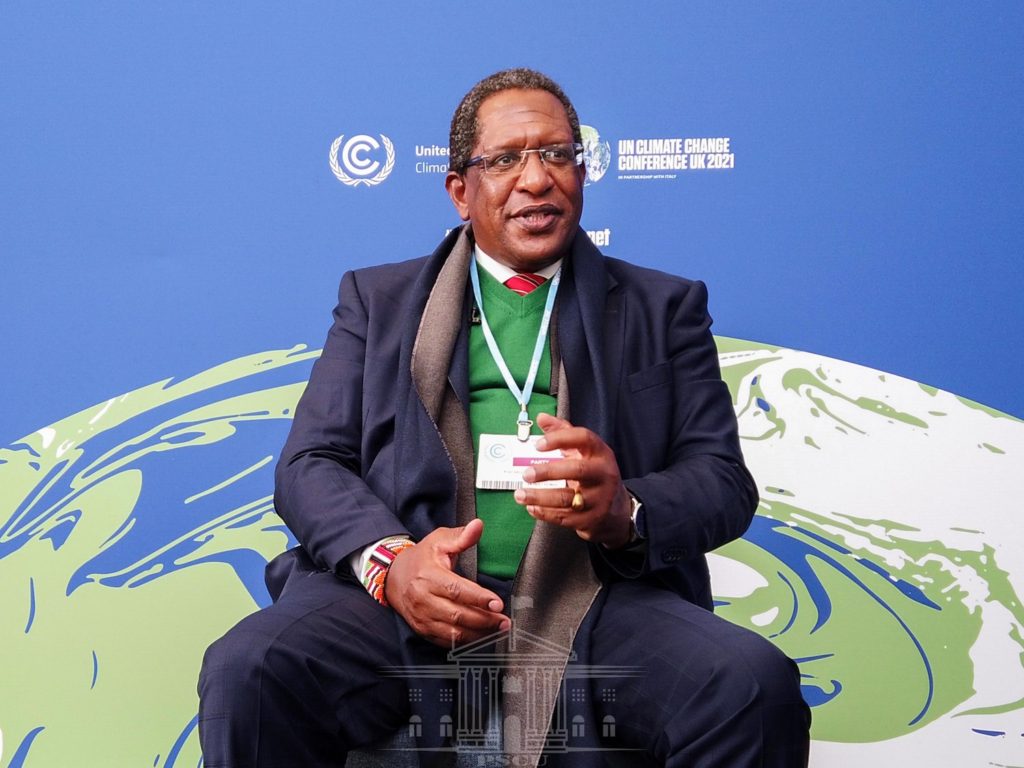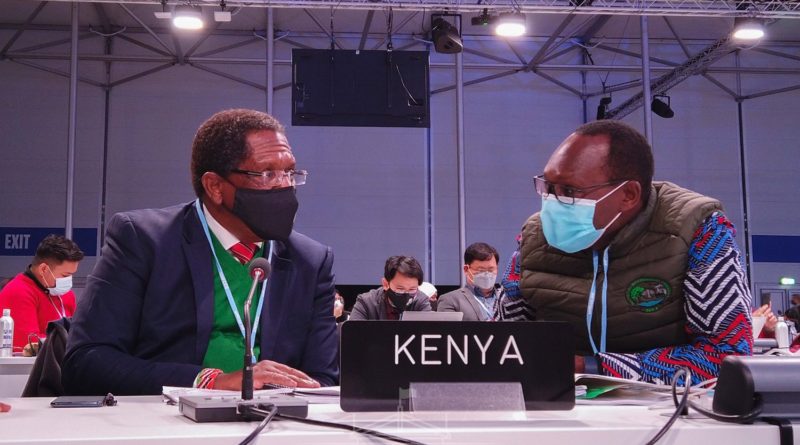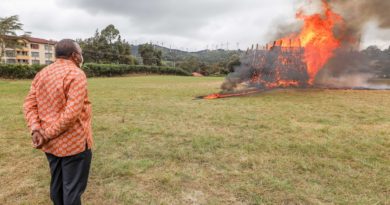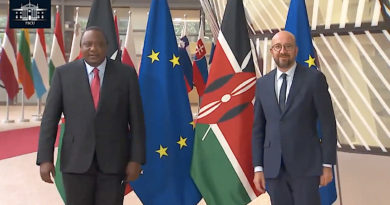Kenya To Push For Fulfilment Of Paris Climate Agreement During COP26 In Glasgow
From president.go.ke and Twitter/@StateeHouseKenya
Kenya will advocate for the full and timely implementation of the Paris Climate Agreement during this year’s United Nations Climate Change Conference (COP26) which gets underway on Sunday in Glasgow, Scotland.
Speaking on Saturday ahead of the conference opening at the Scottish Event Campus (SEC) in central Glasgow, Environment and Forestry CS Keriako Tobiko said Kenya will be particularly keen on ensuring developed nations fulfill their pledge to provide 100 billion US dollars annually for climate change adaptation.
“I am sure you have been hearing about the 100 billion US Dollars pledge, a commitment that was made 10 years ago, and would have been delivered by 2020 but that never happened, 2020 came and passed.
“What we are now being presented with here is another delivery plan that our friends, the developed nations…telling us they will deliver the 100 billion US dollars a year by 2023. So goals have been shifted,” Mr Tobiko said.
He observed that developed nations were shifting goal posts on the implementation of the Paris Climate Agreement saying Kenya and other developing nations were pushing for the global funding for climate adaptation in order to meet growing needs of vulnerable communities.
“You can see the devastation of floods when it rains and drought when it doesn’t rain. We are always in a state of emergency. Kenya is one of the most vulnerable countries and the least emitters of carbon.
“Kenya and Africa bear the brunt of climate change. For us, it is about adaptation and ensuring our people, communities and economy have the necessary resilience to recover when this happens,” CS Tobiko said.
Mr Tobiko pointed out that Kenya was among the first African nations to ratify the Paris Climate Agreement adding that the country had put in place various institutional and policy measures to mitigate on the effects of climate change.
“Kenya is one of the first countries to sign, ratify and domesticate the Paris Agreement. We have put in place institutional policy frameworks. We have done alot and we are an African leader in the area of renewable energy, and I think we are doing better than most of these developed countries,” Mr Tobiko said.
For Kenya and other developing nations to be able to fulfil their obligations of protecting and securing their infrastructure and populations from the adverse effects climate change, Mr Tobiko said there was an urgent need for rich countries to fulfil their Paris pledges.
“Adaptation is building the capacity to deal with devastation. To do that, we need resources. Adaptation has to be maintained with finance. The country has been struggling to protect itself. The developed countries are the largest emitters and are not supporting in terms of finance and technology,” he said.
Mr Tobiko cautioned that if COP26 fails to resolve the issue of reducing emissions and the implementation of the Paris Climate Agreement then it will be devastating for humanity and the globe as it is estimated that atmospheric temperatures are likely to rise by 2.7 degrees celsius by the end of this century.
“The trajectory now is if no action is taken, we are looking at 2.7 degree celsius as opposed to 1.5 degrees celsius at the end of this century. That is grave and especially for Africa because of its geographical location,” Mr Tobiko said, pointing out that the conference offers world leaders an opportunity to salvage the Paris Climate Agreement.
“If this COP fails we are talking about irreversible consequences. This COP is the last COP because we are at the tipping point. And this is the COP that will either save humanity and the planet from irreversible consequences or not”.
Besides the full implementation of the Paris Agreement, Mr Tobiko said African countries will be pushing for the adoption of the special needs and circumstances agenda during the Glasgow meeting because they suffer the most from climate change despite being the list emitters of greenhouse gasses.
“We bear the greatest brunt. We are disproportionally disadvantaged by these 1.5-2.0 degrees celsius and we are calling on the biggest emitters the G20 nations which contribute 80% of greenhouse emissions and control about 80% of the world’s GDP to bear the greatest responsibility,” CS Tobiko said, and called on all countries to play their rightful roles in the fight against climate change.
“All of us have a responsibility to contribute, we have been contributing within our means but we will calling on our developed friends to do their bit, to provide leadership and recognise and accept their responsibility to what they must do”.
The Paris Climate Agreement (also known as the Paris Accord) is an international treaty on the climate crisis which is aimed at radically reducing the world’s carbon emissions and prevent a catastrophic rise in the Earth’s temperature over 2°C.
The 189 nations which participated in signing the agreement were required to establish climate-specific goals to reduce their carbon footprint, known as Nationally Determined Contributions (NDCs).




